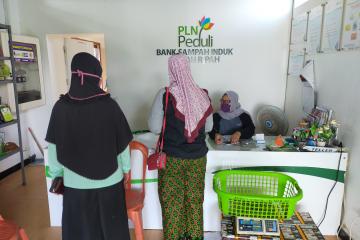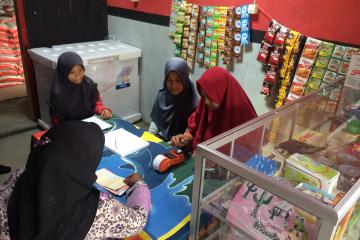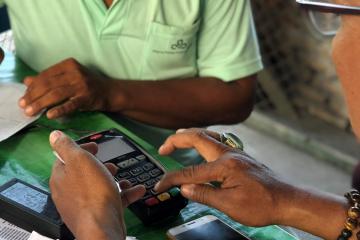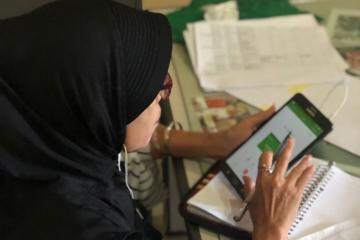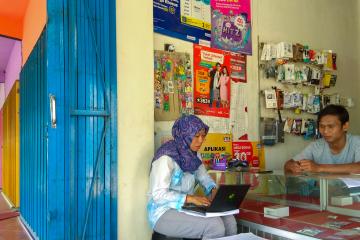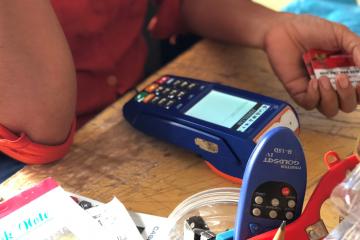Southeast Asia Inclusive Financial Innovation Initiative
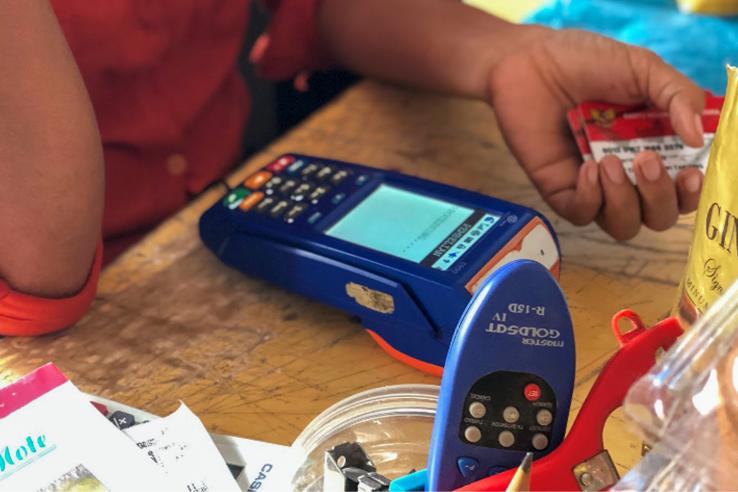
Overview
Evidence alone is not enough: policymakers and practitioners must have ready access to evidence, implement best practices, and engage with the research community to keep pushing the knowledge frontier forward. To achieve this, IFII plans to support the government and stakeholders in this space by not only generating new randomized evaluations but also distilling the existing global evidence to offer policy recommendations and building learning collaborative to share policy lessons, translate research into action, support the capacity building of local DFS stakeholders and researchers, and identify priority areas for new research.
Indonesia is experiencing a rapid expansion in financial access (from 20 percent to 49 percent since 2011), smartphone use, e-commerce platforms, and other digital financial services (DFS). While this growth means Indonesia is poised to become one of the largest digital markets in Southeast Asia, there is widespread concern among Indonesian policymakers that these technologies will remain concentrated in urban and peri-urban areas. At the same time, senior policymakers have expressed a need for evidence on how to harness DFS technologies to expand the financial access frontier. Yet, there is relatively little evidence to guide policymakers and firms committed to this agenda. To address this gap, J-PAL Southeast Asia, funded by the Bill & Melinda Gates Foundation, is launching the Inclusive Financial Innovation Initiative (IFII).
The long-run objective of IFII is to ensure that digital financial services drive economic development while lifting up marginalized populations, including women and people living in poverty. IFII aims to contribute through three elements which will be closely integrated, complementary components:
- New rigorous research. IFII will generate new rigorous evidence to deepen the evidence base on these topics. The research will be designed to answer high priority questions that can inform policy recommendations to policymakers. The research will be implemented through closed-funding opportunities.
- Policy, research, and analysis support. Utilizing the existing global evidence base and offering evidence-based policy recommendations, the team will engage directly with key stakeholders to share knowledge, disseminate learnings from research, identify future research topics, cultivate research partners, and provide ad hoc support to key stakeholders requiring assistance with accessing existing research or conducting data analysis.
- Learning collaborative. The goal of the learning collaborative is to share policy lessons for Indonesian policymakers, researchers, and practitioners; translate research into action; support the capacity building of local DFS stakeholders and researchers; and identify priority areas for new research.
Key Facts
- Research RFP: Open
Funders
Whitepaper
The IFII whitepaper aims to share evidence on DFS can be marshalled to support shared economic prosperity and explore research opportunities to support DFS development in Indonesia.
Read the full white paper in English here.
Read the full white paper in Indonesian here.
Read the executive summary in English here.
Read the executive summary in Indonesian here.
Key Themes
Based on the scoping work of Indonesia DFS landscape, IFII has identified four key themes and high-relevance policy questions for the government and relevant stakeholders. The following key themes will guide research topics, learning collaborative discussions, and research and policy ad hoc support to government partners:
- Digital G2P transfer to help beneficiaries to expand choice of receiving G2P transfer for beneficiaries, effectively utilize their G2P in-kind/fund transfer, and to educate beneficiaries to effectively use the disbursement choice
- Agent network on ways to expand the agent network to provide better access for people living in rural areas with limited banking infrastructure and to enhance agents’ capabilities to encourage new customers to use digital financial services
- E-commerce platform usage for new rural Micro-Small Enterprises and ways to help Micro-Small Enterprises become successful on the e-commerce platform
- Innovation for on-boarding new users to leverage the widespread use of mobile phone in adopting DFS products (e.g. digital remittance, P2P lending, electronic money) and ways for creating a new pool of potential digital loan customers that can be expanded using alternative approaches of credit scoring


